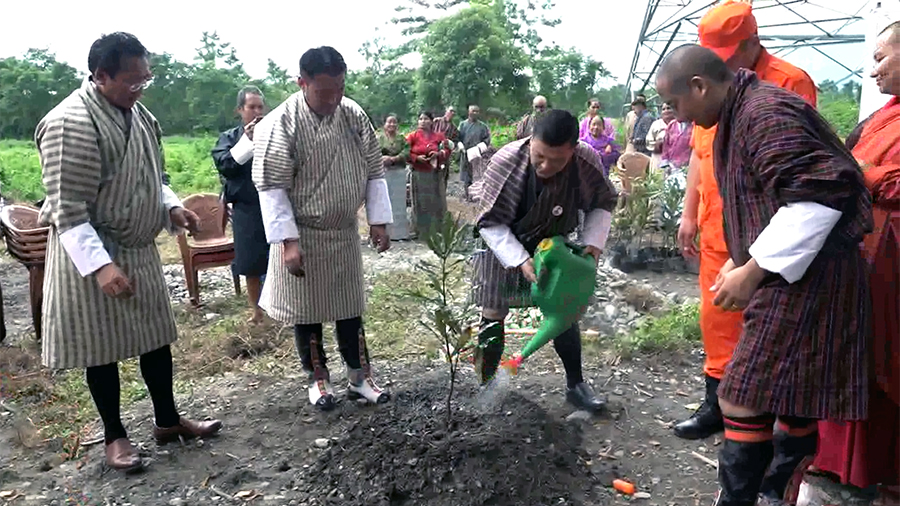
Over one million fruit trees were planted across the country as the second phase of the million fruit tree plantation project drew to a close yesterday. The closing ceremony was held at Samtenling Gewog in Sarpang. The seven-month project benefitted over 40,000 farmers, schools, government agencies, dratshangs, and private companies.
High-value fruit trees like mandarin, macadamia nut, dragon fruit, almond, walnut, Irwin mango, pecan nut, and kiwi were planted during the second phase.
At the closing ceremony, the Sarpang Dzongda said that the people should value these fruit trees as it is a gift from His Majesty the King to enhance income and uplift rural livelihoods.
“Every household must have received between 10 to 16 high-value fruit trees through the project. It is the responsibility of every individual to take care of the fruit trees by providing manure, and water, and keeping its surrounding clear of bushes,” said Lobzang Dorji, Sarpang Dzongda.
The second phase of the project also replaced 30 per cent of fruit plants that did not survive from the first phase.
“We deployed thousands of DeSuups in the villages to verify and account for all plants that died from the first phase. Accordingly, we replaced them in the second phase,” said Sangay Dendup, principal horticulture officer.
The agriculture and livestock ministry will monitor the fruit plants to ensure their survival and to realise the vision of improving the income of the farmers.
The Department of Agriculture in partnership with the DeSuung National Service will conduct field surveys to check on the plant’s health.
The survey would be carried out in September and October for temperate plants and in November and December for the sub-tropical plants.
Based on the findings, dead or damaged plants will be replaced in February and March, next year, for the temperate region and in June and July for the sub-tropical region, respectively.
Karma Wangdi, Sarpang
Edited by Sherub Dorji










